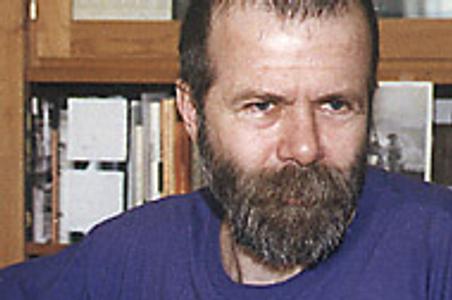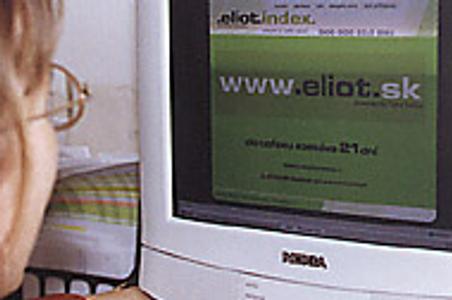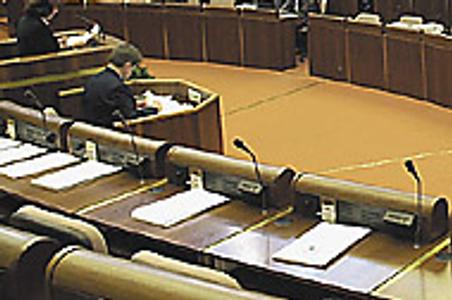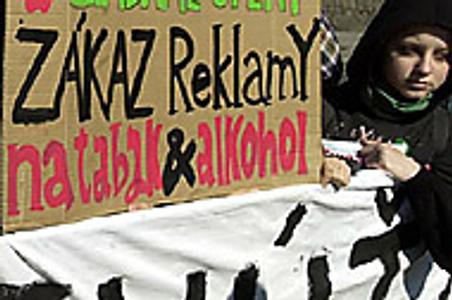Archive of articles - April 2001, page 5
If you desire to read an old article, use the search bar or select the publication date.
Finding a flat: Being accommodating
When I first arrived to teach at Žilina University in the fall of 1995, I was delighted to be lodged in a three-room flat in Žilina's Vlčince district. My spacious, immaculate apartment was owned by the Schools Ministry, and I was to be charged only 2,000 crowns a month (then about $60) rent - a real bargain, I was told. But my dreams of comfortable and above all solitary accommodation were shattered when I received my first monthly pay check for 4,200 crowns.I packed my bags bitterly and moved into a run-down student dormitory, which demanded only 25% of my salary in exchange for noisome quarters inhabited by pimpled youths whose theme song could have been Nessun dorma ('and none shall sleep'). As I lay there nights and listened to the dueling stereos that ringed my room, apart from brimming self-pity I felt a kind of awe that people in Slovakia could either a) learn to accept the limits that cheap housing sets on personal space, or b) bear the financial burden of slightly less cramped living.
The people vs. Martin Klein
Slovak journalist Martin Klein is a self-styled lone wolf. He was never a boy scout, nor did he serve in the army, and he finds the thought of being lumped into any group of men - especially a group of convicted criminals - intolerable. Nevertheless, he has elected to go to jail rather than pay a court fine, and says that if he can do his time in solitude, he won't mind too much."I've always been something of a loner," he says.Klein, 54, doesn't need to be behind bars to feel isolated, but that's where he may be in the coming months. After being fired by Radio Free Europe Prague in 1997 for writing a controversial article for the Slovak weekly Domino efekt, Klein has been unable to find regular work for four years, and in June 2000 was convicted of libel by a Slovak court for the article and sentenced to pay a 15,000 crown fine or spend a month in jail. Since losing an appeal in January, Klein has vowed to go to prison rather than pay the money.
More ISOs point to management quality
The Economy Ministry and the NGO Slovak Quality Society - a non-profit organisation promoting quality management in Slovakia - said March 22 that the standard of management in Slovak firms has improved to reach a par with its Visegrad 4 (Slovakia, Czech Republic, Hungary and Poland) neighbours.Speaking at a press conference on management in Slovakia, the Economy Ministry representatives said that a rising number of ISO 9000 certificates (awarded by the Economy Ministry to firms reaching management quality criteria set by the European Union) handed out in the last 12 months to small and medium-sized (SME) firms was evidence of the improvement.Last year saw 223 Slovak firms awarded ISO 9000 certificates, 55 more than had been awarded in 1999, and bringing the total number of Slovak firms holding the certificates to 729. Of that, 10% is held by SMEs, with almost all awarded in the last 12 months.
Penetration problems plague IT bank
Nine months after the launch of Eliot Bank, officials at Slovakia's most profitable bank, Tatra banka, maintain that their Internet off-shoot and Slovakia's only 'e-bank' has achieved what it set out to.However, they have admitted that the market for Internet banks is limited, claiming that there is "only room for one Internet bank in Slovakia"."The problem is not only with the [relatively low] rate of Internet penetration in Slovakia, but also that there is a ceiling on the market for an Internet bank. These types of bank are usually for younger people with less complicated demands, and there is a limit [to their numbers]," said Philippe Moreels, member of the board at Tatra banka in charge of Eliot.
Community Corner
Czech-Slovak film festivalAustrian Culture Centre exhibition in TrnavaSocial Centre in PiešťanyThe Austrian Culture Centre exhibitions in BratislavaAmCham Business CocktailGoethe Institute exhibitionsFirst TuesdayFrench Institute concertSpanish exhibition at DanubianaBahá'í Community
News Briefs
Balážová murderer sentenced to seven yearsRadical Action Group claims Bekesceba graffitiKey witness detained in mob boss trialCabinet to discuss higher doctors' wages
Letters to the editor
Health care situation is government's faultRoma issue could jeopardise EU aspirationsA retort
NBS says rate cut possibility still open
Although last month's 25 basis point drop in interest rates was seen by many analysts as the last the central bank would be making for a while, head of the monetary policy section at the National Bank of Slovakia (NBS) Peter Ševčovic has said there could be another cut in the not too distant future."If macroeconomic developments go our way, and their development is positive right now, then a rate cut is possible [in the next few months]," he told The Slovak Spectator April 3.The central bank had surprised the market March 23 with a 0.25% rate cut on its key interest rates - to 6% for one day sterilisation operations, 9% for overnight refinancing and 7.5% for two-week repo deals - after saying only weeks before that there was little room for a cut, cautioning on the effects of the introduction of a February 1 hike of regulated prices for gas, power, transport etc. However, the effect of the hike on February inflation was negligible, and has prompted cautious optimism at the bank that a similar welcome surprise could be in store when data for March is examined.
Mass Media Law: More sound, less fury
If any further proof is required that Slovak politicians have very strange ideas about freedom of the press, it is to be found in the Mass Media Law amendment that is in May to go before parliament for a third and final reading.Paragraph 7, section 2 of the law, labeled 'The Conscience Clause', sets impossible conditions for journalists. It requires that any article published "may be published only with the permission of the author... the author in this instance includes the person with whom the journalist did his interview, as long as his comments are reported as direct speech".In other words, you won't be able to publish any article in which the source you cite doesn't give (written? verbal?) approval that his or her comments be used.
Around Slovakia
Woman in coma gives birth to baby girlMobile phone theft may cost policeman his career
Sector looks to new owners' plans as sales draw to a close
With French Societe Generale and Italy's Banca Commerciale Italiana carrying out due diligence in Všeobecná úverová banka (VÚB), OTP, Hungary's largest bank, doing the same in Investična a rozvojová banka (IRB), and Slovenská sporiteľňa (SLSP) already sold off to Austria's Erste Bank, the government's two-year bank restructuring and privatisation scheme is drawing to a close.VÚB's sale is expected to be closed in June, and that of IRB possibly in May. While some doubts still exist as to how successful IRB's privatisation will be, thoughts within the sector are already turning to 'life after privatisation', and what the new owners of the two largest banks in Slovakia, along with those of IRB, will bring to what the government has freely admitted is a sector in need of a foreign shake up.
MP truancy is "outrageous"
Slovak members of parliament are making few friends among the public these days. Paid over three times the national average wage, MPs frequently fail to show up for work, holding up important parliamentary business such as passing laws crucial for EU and NATO entry, as well as solving the country's record unemployment.To make matters worse, MPs have complained about poor job conditions, drawing a storm of abuse from a public which considers their jobs luxurious as it is.Marián Mesiarik, an MP for the ruling coalition Party of Civic Understanding, complained of poor working conditions in parliament on March 20, saying he spoke for over 30 of his colleagues. That same day, however, the scheduled parliamentary session was called off when not enough MPs showed up for work. The following day's sitting was also cancelled.
Around Slovakia
Deer antlers stolen from Poprad museumUniversity students caught selling and growing potBrave post office clerk refuses to give out moneyAlain Delon accused of attempted murder
News Briefs
Balážová murder trial begins; defendant contriteSlovak police: 35 racially motivated crimes last yearJewish deportation ceremony disturbed by explosionRacial graffiti strikes Slovakia and HungaryJustice Ministry angry over ruling on bribery case
Alcohol and tobacco advertising law: profit at what cost?
When Health Minister Roman Kováč announced at a March 19 press conference that the consumption of alcohol per person in Slovakia had dropped 2.5 litres - from 10.4 litres in 1990 to 7.9 in 1999 - he explained that the country's thirst for drink had likely subsided as a result of a Slovak law which restricts alcohol advertisements. In the Czech Republic, he said, that law did not exist; hence the Czech consumption increase over the 1990's from 9 to 9.9 litres per person.But the law Kováč credited for reining in Slovak drinkers may now be thrown out in favour of a new law liberalising the alcohol and tobacco advertising market. Supporters - saying it will put more money into the Slovak economy - welcome it; those fearing a resulting increase in the country's number of addicts oppose it.
BSA draws criticism
The software producer organisation Business Software Alliance (BSA) has, analysts and businessmen agree, achieved results. But some managers believe the tactics used by the group in trying to eradicate computer crime can be counter-productive, and that its decision to send out a recent video featuring a staged police raid was taking an unnecessarily aggressive approach to the problem."Sending this [videotape] to businesses without even a letter of explanation was inappropriate," said Juraj Majtán, director of the Agency for the Development of Small and Medium-Sized Firms. "It's like a bad joke," he said, adding that the video portrayed managers, who are often unaware they are using software illegally, like "murderers"."Using software without paying for it is clearly a crime," he said. "But I don't think scaring people is the way to go. Education, media campaigns, ads on television - those steps would be [more] appropriate."
Community Corner
Jan Hus AwardAmCham's Business CocktailAustrian, German and French Embassy LectureAustrian Culture Centre seminars, concerts and exhibitionsGoethe Institute literature evening and exhibitionSpanish exhibition at Danubiana
Slovak tongue fading out in Hungary
BUDAPEST/MLINKY: The only ethnic Slovak member of the Hungarian parliament, Maria Jakabová, nearly grew up in a different country. She and her family were standing with their bags packed in the doorway of their home in Hungary when her father decided he could not leave the land his family had worked for generations. "Here we are going to live," he said. "And here we are going to die."Because of her father's change of heart, Jakabová, then 12 years old, was not among the 73,000 Slovaks who voluntarily left Hungary in 1948 in the post-war population exchange between Hungary and Czechoslovakia. The migration, according to estimates by Slovak leaders in Hungary, cut Hungary's Slovak minority by about a third, and hastened the acceptance of Hungarian as the minority's dominant language. Those like Jakabová who stayed behind watched as the use of the Slovak language all but disappeared from the daily life of Hungary's Slovak minority.
Law-making and EU entry: Vested interests leaving little room for public debate
As Slovakia nears the date it has set for accession to the European Union (2004), it's becoming clear that all the hard work in 'harmonizing' the country's laws with those of the EU is being put off until the end. Unfortunately, this is due less to the wishes of citizens that the government move slowly, than to the strength of vested political and economic interests, for whom change threatens their cozy symbiosis.Delays are to be expected in the passage of tough laws required by the Union which may in the short term increase unemployment or raise prices, especially as citizens are unconvinced that their illness - not being in the EU - is sufficiently grave to warrant such bitter medicine.On the other hand, some laws are being rejected simply because they threaten the business or political interests of members of parliament. Such was the case with an air pollution law amendment returned to the government last week by President Schuster.
- The law changed. Our family papers were ready. Now my kids are Slovak citizens
- Legendary captain Zdeno Chára inducted into IIHF Hall of Fame Video
- Maria Theresa on the banks of Bratislava
- The Kremlin’s security agency has a Russian contractor in Slovakia - no one has noticed
- Liberal MP's boxing challenge backfires as far-right MEP seizes the moment
- From eight to thousands of runners. How Košice marathon rose to prominence Photo
- No more photos or bank statements? Slovakia moves to ease residence process
- Slovak female triathlete shatters barriers with historic win at Himalayan event
- The law changed. Our family papers were ready. Now my kids are Slovak citizens
- Maria Theresa on the banks of Bratislava
- The Kremlin’s security agency has a Russian contractor in Slovakia - no one has noticed
- Slovak female triathlete shatters barriers with historic win at Himalayan event
- Slovakia loses another EV model to Spain as Stellantis chooses Zaragoza over Trnava
- From eight to thousands of runners. How Košice marathon rose to prominence Photo
- No more photos or bank statements? Slovakia moves to ease residence process
- Iconic Slovak barn still draws crowds. Without donors, it might have been lost Photo
- The law changed. Our family papers were ready. Now my kids are Slovak citizens
- Maria Theresa on the banks of Bratislava
- No more photos or bank statements? Slovakia moves to ease residence process
- Weekend: Celebration of fun comes to Malacky Photo
- Top 10 events in Bratislava for foreigners
- Slovakia loses another EV model to Spain as Stellantis chooses Zaragoza over Trnava
- Slovak female triathlete shatters barriers with historic win at Himalayan event
- The Kremlin’s security agency has a Russian contractor in Slovakia - no one has noticed
- The law changed. Our family papers were ready. Now my kids are Slovak citizens
- Maria Theresa on the banks of Bratislava
- No more photos or bank statements? Slovakia moves to ease residence process
- The Kremlin’s security agency has a Russian contractor in Slovakia - no one has noticed
- Fico praises China and Vietnam as models, says liberal democracy has failed
- News digest: Violent gang in Bratislava is under arrest
- Top 10 events in Bratislava for foreigners
- 3 free things to do in Bratislava in the next seven days
- Legendary captain Zdeno Chára inducted into IIHF Hall of Fame Video
- Liberal MP's boxing challenge backfires as far-right MEP seizes the moment
- The law changed. Our family papers were ready. Now my kids are Slovak citizens
- News digest: Prosecutor seeks jail for NBS Governor Kažimír as his political support wanes
- Slovakia loses another EV model to Spain as Stellantis chooses Zaragoza over Trnava
- Slovak female triathlete shatters barriers with historic win at Himalayan event
- Weekend: Celebration of fun comes to Malacky Photo
- News digest: Fico’s bloc wants to save money by restricting electoral access More articles ›








